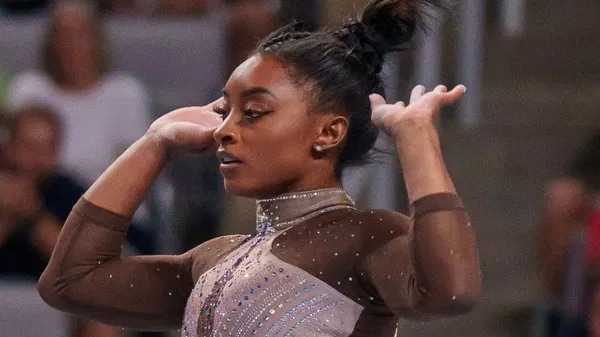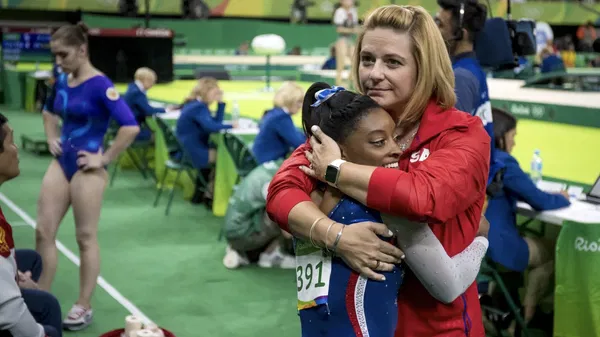
Imagine doing something as simple as walking down the stairs—a daily habit. Now picture waking up one day and forgetting how to do it. That shock is just a fraction of what Simone Biles experienced due to something far more serious, known in gymnastics as the “twisties.” This condition can strike even the most elite athletes and is particularly dangerous in sports like gymnastics. Surprisingly, Biles had her first experience with the twisties even before her Olympic debut.
Most people associate Biles’ struggle with the twisties with the 2021 Tokyo Olympics. During a high-pressure moment, Biles attempted a 2.5 twist but ended up performing only a 1.5 twist because she lost her spatial awareness mid-air. Feeling disoriented at such a height is extremely risky, and Biles made the tough decision to withdraw from the rest of the event. This moment brought national attention to the twisties—when gymnasts suddenly lose their sense of where their body is while performing.
However, it wasn’t the first time Biles had dealt with this issue. Her former coach, Aimee Boorman, recently revealed in her memoir The Balance: My Years Coaching Simone Biles that Biles experienced the twisties as early as 2015, months before the Rio Olympics. At the time, Biles was unable to perform any twisting moves at all, prompting major concern as the Olympics approached. She described the feeling as being completely disoriented: “Literally can not tell up from down.”

To address it, Boorman made a conscious effort to reduce pressure on Biles. Rather than forcing the issue, she reassured her, saying, “If you don’t want to twist, we won’t twist.” She carefully managed the timing of reintroducing skills, always trying to protect Biles’ mental and emotional confidence. Boorman even involved Biles’ parents and a sports performance therapist to ensure she had the professional support she needed.
This same approach helped during the Tokyo Olympics, as Biles once again had the backing of coaches who prioritized her well-being. Her decision to withdraw from competition sparked a global conversation about athletes and mental health, highlighting the invisible struggles that come with the pressure to perform at the highest level.
Boorman had noticed the mounting pressure on Biles as early as the 2015 World Championships in Glasgow. After securing her third consecutive world all-around title, Biles immediately asked her coach, “Did I do it?” and then embraced her with visible relief. Despite her historic achievement, the emotional toll and pressure were clear.
As of now, Biles hasn’t confirmed whether she’ll compete in the 2028 Los Angeles Olympics. At 28, she’s taking time to focus on both her physical and mental recovery, acknowledging the toll that Olympic-level training takes over the years. While fans are eager for her return, she emphasized that it’s a long-term commitment—not just a one-year effort.
Although she’s undecided about competing, Biles affirmed she will be present at the LA Games in some capacity. Whether she’s performing on the floor or cheering from the stands, her presence is guaranteed. With everything she’s endured, her uncertainty has sparked speculation: is she facing the same pressures once again?
Her fans and the broader sports world continue to wonder—will Simone Biles return to compete, or will she prioritize her well-being? Either way, her impact on gymnastics and athlete mental health advocacy remains undeniable.